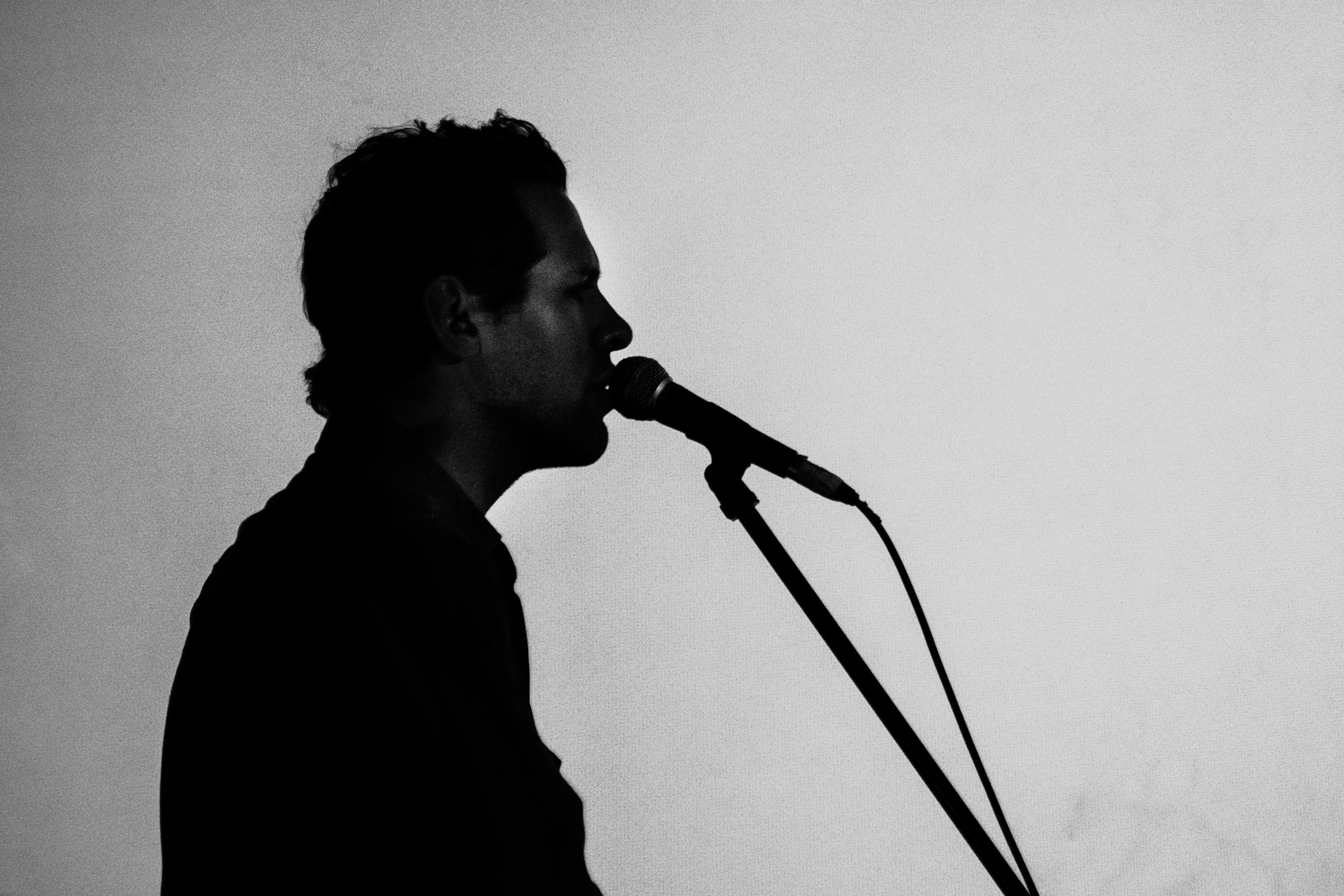On May 7, I was to have my first experience with “unlistenable” sounds in a musical context, and for 7 hours, no less. While I was at first intimidated by Vancouver Noise Fest VI, I was comforted by the ‘Artist Talk’ given in the front room of the Red Gate by Scott Reber, the man behind noise project Work/Death. In it he explained the links between noise and its artistic ancestors — including Musique concrète, and Dadaism — over a backdrop of various field recordings. What struck me most about Reber’s talk was his ruminations on the narrative that noise music can create — how ambient sounds and field recordings allow one to share someone else’s lived experience. With this narrative in mind I plunged headlong into the noise.
Local act Maskara began the show with desperate vocal drones delivered from behind a pink veil wrapped around his head, under hollow lights that grew dimmer as the night drew on. This was followed by Vancouverites The Flood, FCRSAC, and Hectocotyli, all providing a compliment of huge synths and relentless, oscillating percussion through various rickety setups. Next, Seattle’s Ox Hunger screamed wretchedly through the clang of industrial machinery, preceding Crotch, who hunted down phone users in the crowd with a makeshift theremin, and punctuated putrid spoken word with massive, blood-curdling blasts of sound.
JS Aurelius delivered an intellectually fascinating set, applying computer algorithms to vibrations received from a sheet of glass, leaving it shattered by the end of the piece. Then, the animal aggression of Seattle’s Anteinferno was contrasted by cerebral and measured sets from Vancouver’s own Mass Marriage and Nervous Operator. Next, violent object manipulations by local duo Molena, and the rhythmic industrial sounds of Sunstroke Militia bookended the pummelling, yet pretty compositions of Ritter Leinahtan, which were built around a pitched-down vocal sample that repeated throughout the piece: “The garbage of my life fills up/ Every dirty, stinking sin falls into my foul and bitter cup.”
The crowd began to pack in as John Brennan served up a visceral and exciting offering of spasmodic jazz drumming, winding around huge blasts of noise, hooked up to an antique TV set that glowed with ominous, faded colours. Griefer from Victoria attacked his invented instruments over a set of oddly funky loops and samples, interspersed with aggressive, didactic shouts. This was followed by an undeniably beautiful piece by Portland’s Gordon Ashworth, mixing field recordings and acoustic samples into a satisfying melange.
Worker started his set proclaiming “I hate all of you!” before intently spraying the crowd with sparks from his angle grinder, which also provided sound for his music. Vancouver noise veterans Sam Mckinlay of The Rita and Gabriel Saloman of Sade Sade were up next, combining incomprehensible and kinetic guitar shredding with careful synth work for an overwhelmingly dissonant sound.
It had become apparent to me that these artists were telling stories; some of pain, labour, malaise, exploitation, and even perhaps some kind of hopefulness. Some clearly acknowledged a narrative while others prefered chaos. But this idea of noise music creating a narrative was no more apparent to me than in the set by Work/Death, from Providence, Rhode Island. He took the crowd on an urban journey, through train tunnels and warehouses, factories and highways, while pieces of metal bounced around hypnotically in the speaker cones he had set up on his desk.
Reber very clearly had an emotional connection to his music, with the ambient swells of noise from his gear evoking a visible response from him. It was also clear to me by the end of the night that the sounds that had been created were not “unlistenable” at all, but could in fact be used to achieve something of emotional depth, coherence and power. After 7 hours of noise, I was reminded of a quote from Reber’s opening lecture by 20th century American composer Robert Erickson, on the nature of noise and the “disposable” sounds in our environment: “I strongly resist the idea that it’s garbage… the more one listens, the more one finds that it’s all jewels.”






